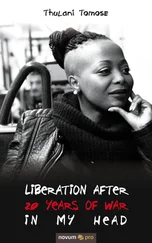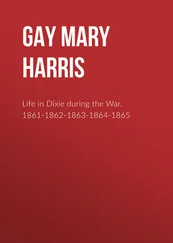Myrta Avary - Dixie After the War
Здесь есть возможность читать онлайн «Myrta Avary - Dixie After the War» — ознакомительный отрывок электронной книги совершенно бесплатно, а после прочтения отрывка купить полную версию. В некоторых случаях можно слушать аудио, скачать через торрент в формате fb2 и присутствует краткое содержание. ISBN: , Жанр: foreign_antique, foreign_prose, Историческая проза, на английском языке. Описание произведения, (предисловие) а так же отзывы посетителей доступны на портале библиотеки ЛибКат.
- Название:Dixie After the War
- Автор:
- Жанр:
- Год:неизвестен
- ISBN:http://www.gutenberg.org/ebooks/41730
- Рейтинг книги:5 / 5. Голосов: 1
-
Избранное:Добавить в избранное
- Отзывы:
-
Ваша оценка:
- 100
- 1
- 2
- 3
- 4
- 5
Dixie After the War: краткое содержание, описание и аннотация
Предлагаем к чтению аннотацию, описание, краткое содержание или предисловие (зависит от того, что написал сам автор книги «Dixie After the War»). Если вы не нашли необходимую информацию о книге — напишите в комментариях, мы постараемся отыскать её.
Dixie After the War — читать онлайн ознакомительный отрывок
Ниже представлен текст книги, разбитый по страницам. Система сохранения места последней прочитанной страницы, позволяет с удобством читать онлайн бесплатно книгу «Dixie After the War», без необходимости каждый раз заново искать на чём Вы остановились. Поставьте закладку, и сможете в любой момент перейти на страницу, на которой закончили чтение.
Интервал:
Закладка:
During the night detonations of exploding gunboats could be heard for miles, the noise and shock and lurid lights adding to the wretchedness of those within the city, and the anxieties of those who beheld its burnings from afar; among these, the advancing enemy, who was not without uneasy speculations lest he find Richmond, as Napoleon found Moscow, in ashes. General Shepley, U. S. A., has described the scene witnessed from his position near Petersburg, as a most beautiful and awful display of fireworks, the heavens at three o’clock being suddenly filled with bursting shells, red lights, Roman candles, fiery serpents, golden fountains, falling stars.
Nearly all the young men were gone; the fire department, without a full force of operatives, without horses, without hose, was unable to cope with the situation. Old men, women and children, and negro servants fought the flames as well as they could.
Friends and relatives who were living in Richmond then have told me about their experiences until I seem to have shared them. One who appears in these pages as Matoaca, gives me this little word-picture of the morning after the evacuation:
“I went early to the War Department, where I had been employed, to get letters out of my desk. The desk was open. Everything was open. Our President, our Government, our soldiers were gone. The papers were found and I started homeward. We saw rolls of smoke ahead, and trod carefully the fiery streets. Suddenly my companion caught my arm, crying: ‘Is not that the sound of cavalry?’ We hurried, almost running. Soon after we entered the house, some one exclaimed:
“‘God help us! The United States flag is flying over our Capitol!’
“I laid my head on Uncle Randolph’s knee and shivered. He placed his hand lightly on my head and said: ‘Trust in God, my child. They can not be cruel to us. We are defenseless.’ He had fought for that flag in Mexico. He had stood by Virginia, but he had always been a Unionist. I thought of New Orleans, Atlanta, Columbia.”
An impression obtained that to negro troops was assigned the honor of first entering Richmond, hauling down the Southern Cross and hoisting in its place the Stars and Stripes. “Harper’s Weekly” said: “It was fitting that the old flag should be restored by soldiers of the race to secure whose eternal degradation that flag had been pulled down.” Whether the assignment was made or not, I am unable to say; if it was, it was not very graceful or wise on the part of our conquerors, and had it been carried out, would have been prophetic of what came after – the subversion.
White troops first entered Richmond, and a white man ran up the flag of the Union over our Capitol. General Shepley says that to his aide, Lieutenant de Peyster, he accorded the privilege as a reward for caring for his old flag that had floated over City Hall in New Orleans. On the other hand, it is asserted that Major Stevens performed the historic office, running up the two small guidons of the Fourth Massachusetts Cavalry, which were presently displaced by the large flag Lieutenant de Peyster had been carrying in the holster at his saddle-bow for many a day, that it might be in readiness for the use to which he now put it.
CHAPTER III
The Army of the Union: The Children and the Flag
The Army of the Union entered Richmond with almost the solemnity of a processional entering church. It was occasion for solemn procession, that entrance into our burning city where a stricken people, flesh of their flesh and bone of their bone, watched in terror for their coming.
Our broken-hearted people closed their windows and doors and shut out as far as they could all sights and sounds. Yet through closed lattice there came that night to those living near Military Headquarters echoes of rejoicings.
Early that fateful morning, Mayor Mayo, Judge Meredith and Judge Lyons went out to meet the incoming foe and deliver up the keys of the city. Their coach of state was a dilapidated equipage, the horses being but raw-boned shadows of better days when there were corn and oats in the land. They carried a piece of wallpaper, on the unflowered side of which articles of surrender were inscribed in dignified terms setting forth that “it is proper to formally surrender the City of Richmond, hitherto Capital of the Confederate States of America.” Had the words been engraved on satin in letters of gold, Judge Lyons (who had once represented the United States at the Court of St. James) could not have performed the honours of introduction between the municipal party and the Federal officers with statelier grace, nor could the latter have received the instrument of submission with profounder courtesy. “We went out not knowing what we would encounter,” Mayor Mayo reported, “and we met a group of Chesterfields.” Major Atherton H. Stevens, of General Weitzel’s staff, was the immediate recipient of the wallpaper document.
General Weitzel and his associates were merciful to the stricken city; they aided her people in extinguishing the flames; restored order and gave protection. Guards were posted wherever needed, with instructions to repress lawlessness, and they did it. To this day, Richmond people rise up in the gates and praise that Army of the Occupation as Columbia’s people can never praise General Sherman’s. Good effect on popular sentiment was immediate.
Among many similar incidents of the times is this, as related by a prominent physician:
“When I returned from my rounds at Chimborazo I found a Yankee soldier sitting on my stoop with my little boy, Walter, playing with the tassels and buttons on his uniform. He arose and saluted courteously, and told me he was there to guard my property. ‘I am under orders,’ he said, ‘to comply with any wish you may express.’”
Dr. Gildersleeve, in an address (June, 1904) before the Association of Medical Officers of the Army and Navy, C. S. A., referred to Chimborazo Hospital as “the most noted and largest military hospital in the annals of history, ancient or modern.” With its many white buildings and tents on Chimborazo Hill, it looked like a town and a military post, which latter it was, with Dr. James B. McCaw for Commandant. General Weitzel and his staff visited the hospital promptly. Dr. McCaw and his corps in full uniform received them. Dr. Mott, General Weitzel’s Chief Medical Director, exclaimed: “Ain’t that old Jim McCaw?” “Yes,” said “Jim McCaw,” “and don’t you want a drink?” “Invite the General, too,” answered Dr. Mott. General Weitzel issued passes to Dr. McCaw and his corps, and gave verbal orders that Chimborazo Confederates should be taken care of under all circumstances. He proposed to take Dr. McCaw and his corps into the Federal service, thus arming him with power to make requisition for supplies, medicines, etc., which offer the doctor, as a loyal Confederate, was unable to accept.
Others of our physicians and surgeons found friends in Federal ranks. To how many poor Boys in Blue, longing for home and kindred, had not they and our women ministered! The orders of the Confederate Government were that the sick and wounded of both armies should be treated alike. True, nobody had the best of fare, for we had it not to give. We were without medicines; it was almost impossible to get morphia, quinine, and other remedies. Quinine was $400 an ounce, when it could be bought at all, even in the earlier years of the war. Our women became experts in manufacturing substitutes out of native herbs and roots. We ran wofully short of dressings and bandages, and bundles of old rags became treasures priceless. But the most cruel shortage was in food. Bitter words in Northern papers and by Northern speakers – after our defeat intensified, multiplied, and illustrated – about our treatment of prisoners exasperated us. “Will they never learn,” we asked, “that on such rations as we gave our prisoners, our men were fighting in the field? We had not food for ourselves; the North blockaded us so we could not bring food from outside, and refused to exchange prisoners with us. What could we do?”
Читать дальшеИнтервал:
Закладка:
Похожие книги на «Dixie After the War»
Представляем Вашему вниманию похожие книги на «Dixie After the War» списком для выбора. Мы отобрали схожую по названию и смыслу литературу в надежде предоставить читателям больше вариантов отыскать новые, интересные, ещё непрочитанные произведения.
Обсуждение, отзывы о книге «Dixie After the War» и просто собственные мнения читателей. Оставьте ваши комментарии, напишите, что Вы думаете о произведении, его смысле или главных героях. Укажите что конкретно понравилось, а что нет, и почему Вы так считаете.












